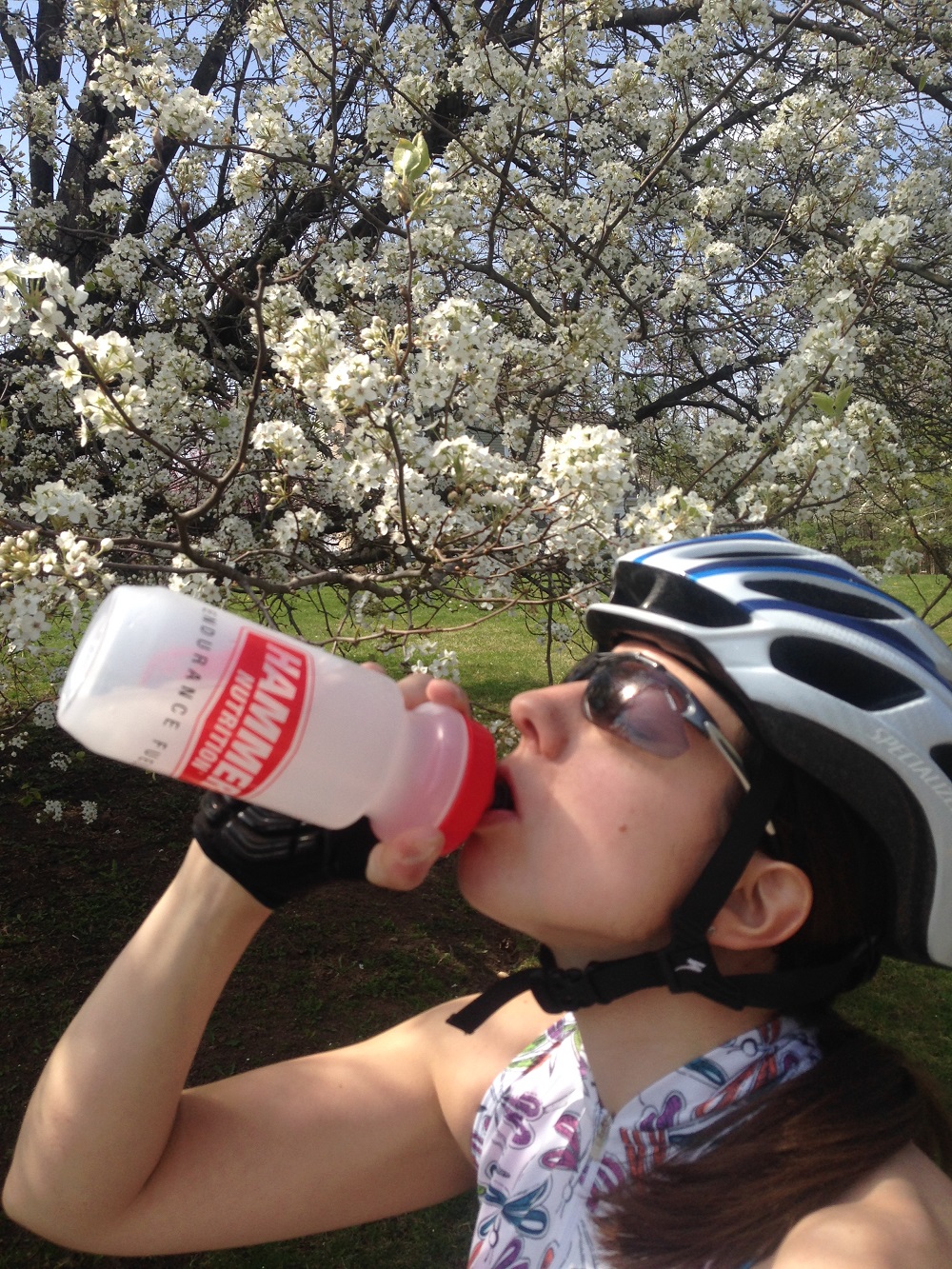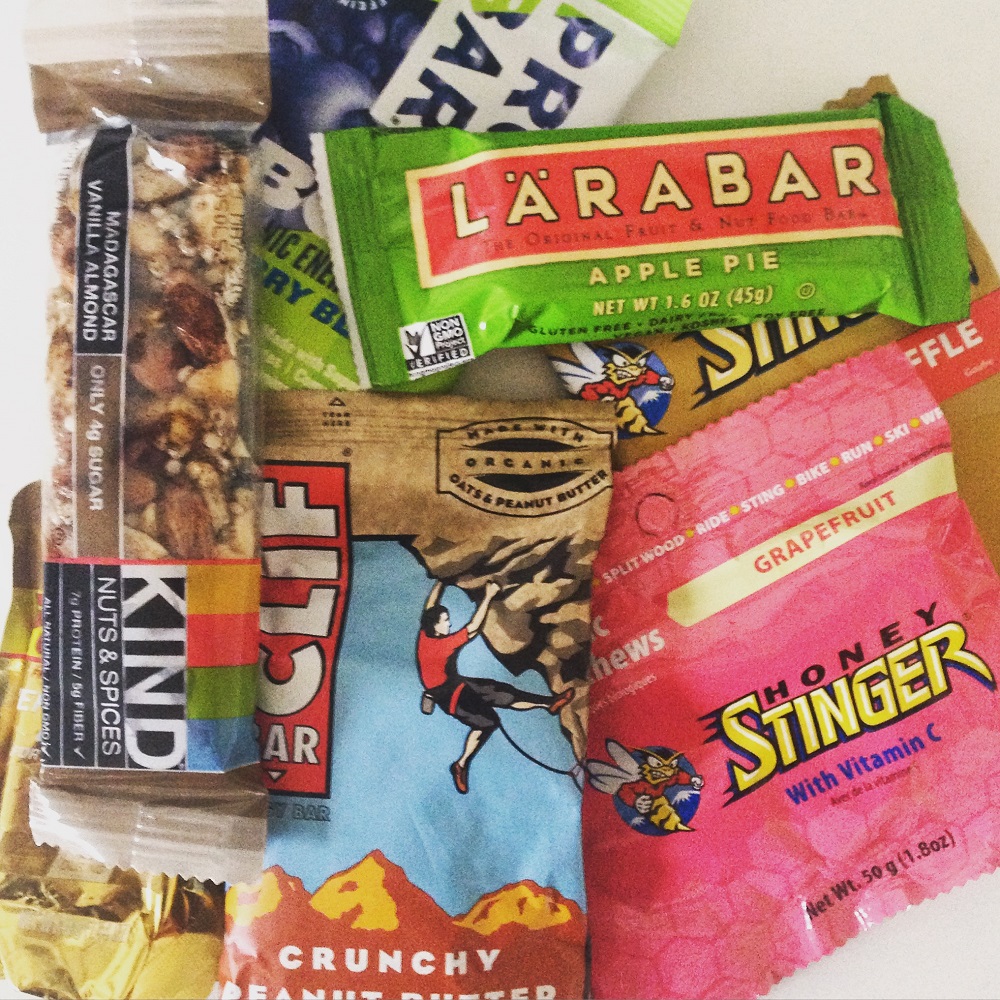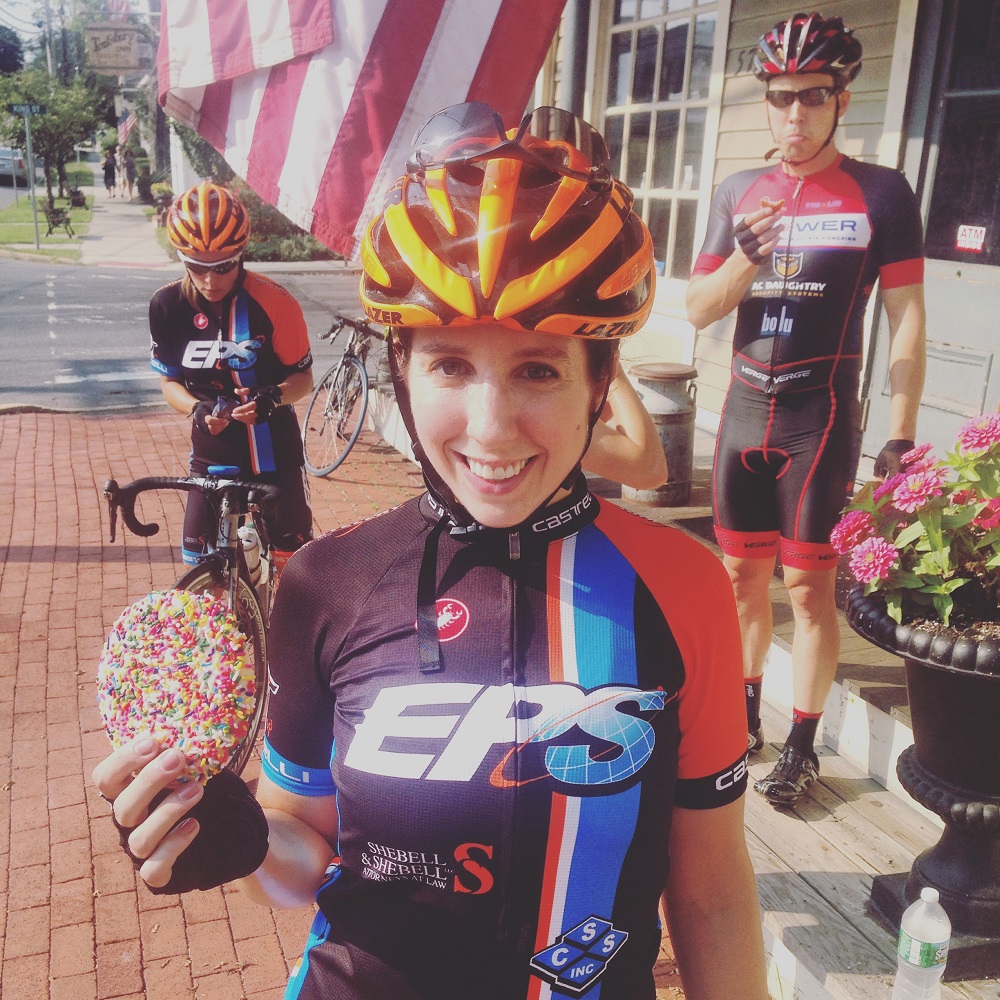When it comes to eating and drinking during long workouts or races, some of us do it better than others. I have spoken to people who say that they never eat on a bike ride, even if they are going out for four or five hours, which just sounds crazy to me. If you are out on a long ride or run and your legs start to feel heavy and it feels hard to continue on, think about how much food and water you have consumed up until that point. If the answer is none, or not much, this lack of nutrients and hydration is probably the cause of your suffering. You want to suffer because you are working hard, not because you aren’t giving your body the fuel it needs to perform.
I once rode a very hilly metric century on a warm humid summer day. The sun was blazing down and the hills were relentless. I was sweating profusely as I worked my way through hill after hill. At around the forty mile mark, I came to a water stop and was asked if I needed to fill up my bottles. I looked down and realized that after approximately two and a half hours of riding in the heat I had only emptied half a water bottle and hadn’t eaten anything yet. I continued on with the ride feeling alright at first, but by the last few miles I felt like a zombie. On the last big hill around mile sixty my legs started to cramp and I wasn’t sure if I could make it to the end. My body was definitely depleted of food and water and I felt horrendous!
The plain and simple fact is that you need food and water in your system in order for your body to perform at its best. Can you complete a four hour bike ride without eating or drinking much? Probably, but you definitely will not be feeling as good or riding as strong by the end of that four hour span. In hot conditions your body needs water to regulate its temperature. “Water acts as your body’s cooling system,” according to Web MD. So if you become too dehydrated in hot conditions you will start to overheat since your body simply does not have enough of the water it needs to keep you cool. Furthermore, when you are dehydrated your blood volume drops and your heart has to work much harder to continue pumping. Obviously your heartrate should already be elevated during a ride or a run, so not only is your heart working hard due to the strain of the workout, but now it has the added stress of dehydration. This means your body has to work a lot harder for you to keep up the same effort. For example, if you normally run eight minute miles you may discover that as you dehydrate your pace slows or you have to work much hard to keep up that pace. Dehydration also effects your brain. Lack of water makes your brain work harder to function and will lead to you feeling tired, having headaches and not being able to focus as well. The last thing you want when you are flying down a descent at forty miles per hour with cars on the road is a fuzzy feeling brain!

Hydration is essential during long workouts. Companies like Hammer Nutrition make electrolyte powders you can add to water for longer workouts on hot days.
Ok so you have to hydrate to continue performing at your best, but why eat during a long training ride or run? Have you ever been two hours into a ride and all of a sudden you become ravenously hungry, your legs feel like cement and it starts to get harder and harder to keep propelling yourself forward? This means you are probably starting to bonk which is a terrible feeling. You want to enjoy your workout and be able to perform well throughout the duration, whether it’s two hours or five hours. Your body needs glycogen to keep performing at its best and like dehydration, once your body is depleted of glycogen it will no longer be able to perform as well as you would like. What seemed like a moderate pace will now seem laborious and almost impossible to sustain. Everything will just start to feel more difficult and less enjoyable.
So why put your body through that added strain, when eating a small amount of food and drinking the appropriate amount of water during a workout can make the whole experience much more enjoyable. My rule for nutrition during a workout, is to make sure I am eating every hour. It may just be a couple of bites of an energy bar or a couple of electrolyte chews, but I try to make sure that I am putting some kind of fuel in my body each hour. Similarly, the rule I follow for hydration, is to drink one bottle of fluid every hour (maybe more on a really hot day or a little bit less on a really cold one). This is actually not hard to do, if you have some kind of computer that you use during a ride or run (as many of us do). When you hit the one hour mark, make yourself eat something and check your water to see how much you have been drinking up until that point and then repeat this with each passing hour. This small effort will make your workout much more productive and enjoyable, recovery will be quicker and your body will thank you later.
Quick Tips for Nutrition and Hydration during Workouts and Races
• Don’t wait until you are hungry or thirsty to eat or drink. That means it’s a bit late and your body is already depleted.
• Mix your drinks – if you have one bottle with some kind of electrolyte powder in it, then make the other bottle just plain water.
• Don’t eat or drink anything you haven’t tested before during a race or important long training ride. It may not agree with your stomach and that is not the time to test something new.
• On long rides, start with solid food and switch to something more liquid toward the end. The solid food takes longer to digest and gives you sustained energy, while the liquids give you a quick boost.
• Try to remind yourself to drink a few sips from your bottle every 10 to fifteen minutes to truly help avoid dehydration.

